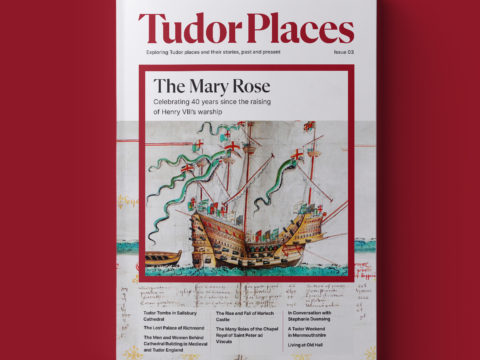Robert Dudley: Life Story
Chapter 14 : Governing the Netherlands
On 7th February (still not having heard directly from Robert) preparations were made for Thomas Heneage to travel to the Netherlands to convey the Queen’s orders that Robert should immediately resign his office. Before he departed, Davison finally arrived with Robert’s justification.
Elizabeth was not impressed – he had not asked for her consent before accepting the honour, and ‘appear[ed] to respect his own greatness more than her honour or service’. Eventually reading the letter Robert had sent, and persuaded by Cecil, Elizabeth relented so far as to spare Robert from having to make a public resignation of the office, but he must still resign it. Her reasons were that
‘It [was] sufficient to make [her] infamous to all princes, having protested the contrary in a book which is translated into divers and sundry languages’ and further ‘[She] may not endure that any man should alter [her] commission and the authority that [she] gave him, upon his own fancies and without [her] [consenting]’
Her orders reached him on 2nd March. Robert, rather ungraciously, blamed Davison for not presenting his case well enough, and also added that Davison and others had urged him to accept the position. Davison’s response was that Robert had needed little persuasion, and that only Robert had known that Elizabeth had expressly forbidden him taking such a title.
Elizabeth would not undertake any action in relation to the war in the Netherlands until she had heard that Robert had resigned his role. No more funds or men were forthcoming. But her council was so strongly in favour of continued intervention, that, eventually, she was worn down. Cecil procured her consent to Robert remaining in post until the States-General could ‘devise some qualification of his title and authority as might remove her objections without peril to the public welfare,’ and this was the message that Thomas Heneage was to deliver.
Robert’s brother, Ambrose, Earl of Warwick, wrote to him on 6th March that Elizabeth was implacable – her ‘rage doth daily increase…Her malice is great and unquenchable.’ Heneage delivered the unwelcome news to the States General, who responded by requesting the queen to think again. They were echoed by Cecil, and eventually, Elizabeth consented that Robert might continue in post for the time being. He also received more comforting news of her mood. Sir Walter Raleigh wrote that ‘The Queen is in very good terms with you and thanks be to God, well pacified, and you are again her ‘Sweet Robin’'.
But the calm was not to endure, and the orders for a reduced title were once again dispatched to the States General. This public rebuke effectively ham-strung Robert’s position with the States-General. Although the title was never formally revoked, without Elizabeth standing behind it, Robert had little more authority than any others. Quarrels about men and money continued, with much promised but little delivered. Robert began to despair of achieving anything. He complained that it was ‘a monstrous government where so many heads rule’. Before long, he was begging to be recalled. ‘Would to God I were rid of this place’, he complained, and was not mollified when the States General made little show of regret on his recall.
Robert’s chief role, was, of course, to lead successful military opposition to the Spanish, whose troops were led by the Duke of Parma, (the husband of Philip of Spain’s half-sister, Margaret) and official Governor of the Netherlands. Parma was an experienced general, and Robert’s ill-paid and ill-equipped troops were no match for him. Elizabeth herself recognised the impossibility of a long-term military campaign, and continued to seek peace, even agreeing that King Philip need only extend religious toleration ‘so far as his conscience allowed’ (which was not at all). She would not, though, formally request peace.
The war was costing a fortune, although the soldiers themselves seem to have seen little of the money, and had to feed and clothe themselves out of their meagre, irregular wages. Robert was concerned about their plight, ‘There is much due to them’, he wrote. ‘They cannot get a penny, their credit is spent, they perish for want of victuals and clothing in great numbers.‘
The accounting is complex, but it appears that part of the problem was the failure of the States General to repay money for supplies and soldiers – and, of course, the endemic corruption within the army itself. Captains frequently retained the pay due to their men, or claimed wages for men already dead. Although Robert was aware of these problems he did not have the skills to handle day to day management and coupled with this, Parma was achieving significant success in the southern provinces.
Lord Robert Dudley
Family Tree


